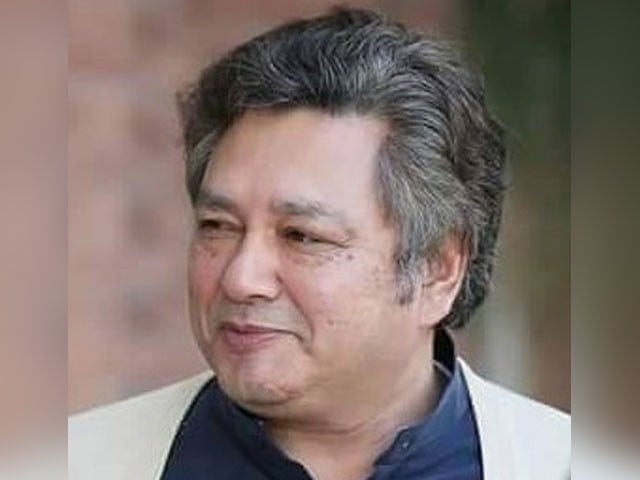Azam’s testimony has no legal value, says PTI counsel
Says ex-principal secy recorded his statement as accused and not as witness

Pakistan Tehreek-e-Insaf (PTI) counsel Barrister Salman Safdar on Tuesday informed the Islamabad High Court (IHC) that Azam Khan, principal secretary to former premier Imran Khan, had changed his statement in the cipher case, adding that he had testified before the magistrate as an accused and not as a witness, which was not under oath, therefore it had not legal status.
The PTI lawyer made these arguments as a division bench of the IHC comprising Chief Justice Aamer Farooq and Justice Miangul Hassan Aurangzeb heard the PTI founder and former foreign minister Shah Mahmood Qureshi’s appeals against their sentence in the case.
Last year, in his testimony before a court, Azam Khan had claimed that Imran Khan directed his military secretary and personal staff ‘a number of times’ to search for the cipher, but then he waved a piece of paper in the public rally on March 27 ‘implying’ that it was the diplomatic cable.
During the hearing, Barrister Safdar contended that Azam Khan’s statement before the investigation officer and the magistrate differed. He said deviating from the previous statement went in the accused favour.
The chief justice remarked that according to the prosecution cipher was ‘twisted’. He asked what did the lawyer say in this context.
Barrister Safdar maintained that Azam Khan had never said that the PTI founder had intentionally misplaced the copy of the cipher, but had said that Imran asked the military secretary to search for a copy of the diplomatic cable.
The counsel said according to the FIR, the piece of paper was waved during a public gathering on March 27, 2023 whereas the conspiracy was hatched in a meeting on March 28. He said later the prosecution did not insist on this point and dropped the charge mentioned in the FIR.
Barrister Safdar noted that Azam Khan was nominated as accused in the FIR and that he was charged with framing the ‘minutes of the meeting’ and ‘being a part of conspiracy’.
The chief justice remarked that Azam Khan was not named as accused in the FIR, adding that if he was named as suspect in the preliminary investigation, but was not in the challan.
Barrister Safdar argued that Azam Khan was sent call up notices for seventeen months to join the inquiry.
The lawyer said Azam was ‘abducted’ and after the registration of FIR, the very next day he recorded his statement without getting his bail.
He said the accused recorded his statement before the magistrate the same day after having done so before the investigation officer.
The magistrate while recording the statement had written that the accused was presented, he said.
The chief justice inquired whether Azam Khan was arrested after his statement was recorded on August 16.
Barrister Safdar replied that the magistrate recorded the statement and said that Azam Khan would not be handed over to the authorities.
This means that he recorded his statement not as a witness but as an accused, he said, adding that the statement before the magistrate was not under oath.
Later, the court adjourned the hearing of the case until April 3.





1724319076-0/Untitled-design-(5)1724319076-0-208x130.webp)













COMMENTS
Comments are moderated and generally will be posted if they are on-topic and not abusive.
For more information, please see our Comments FAQ